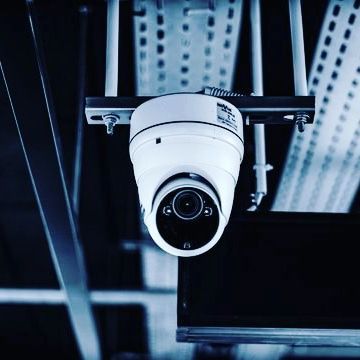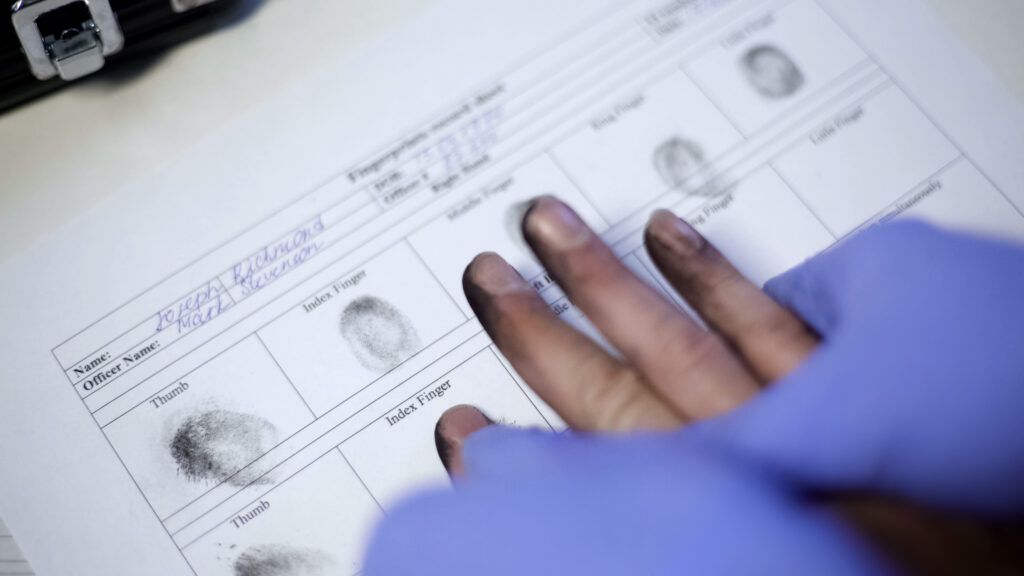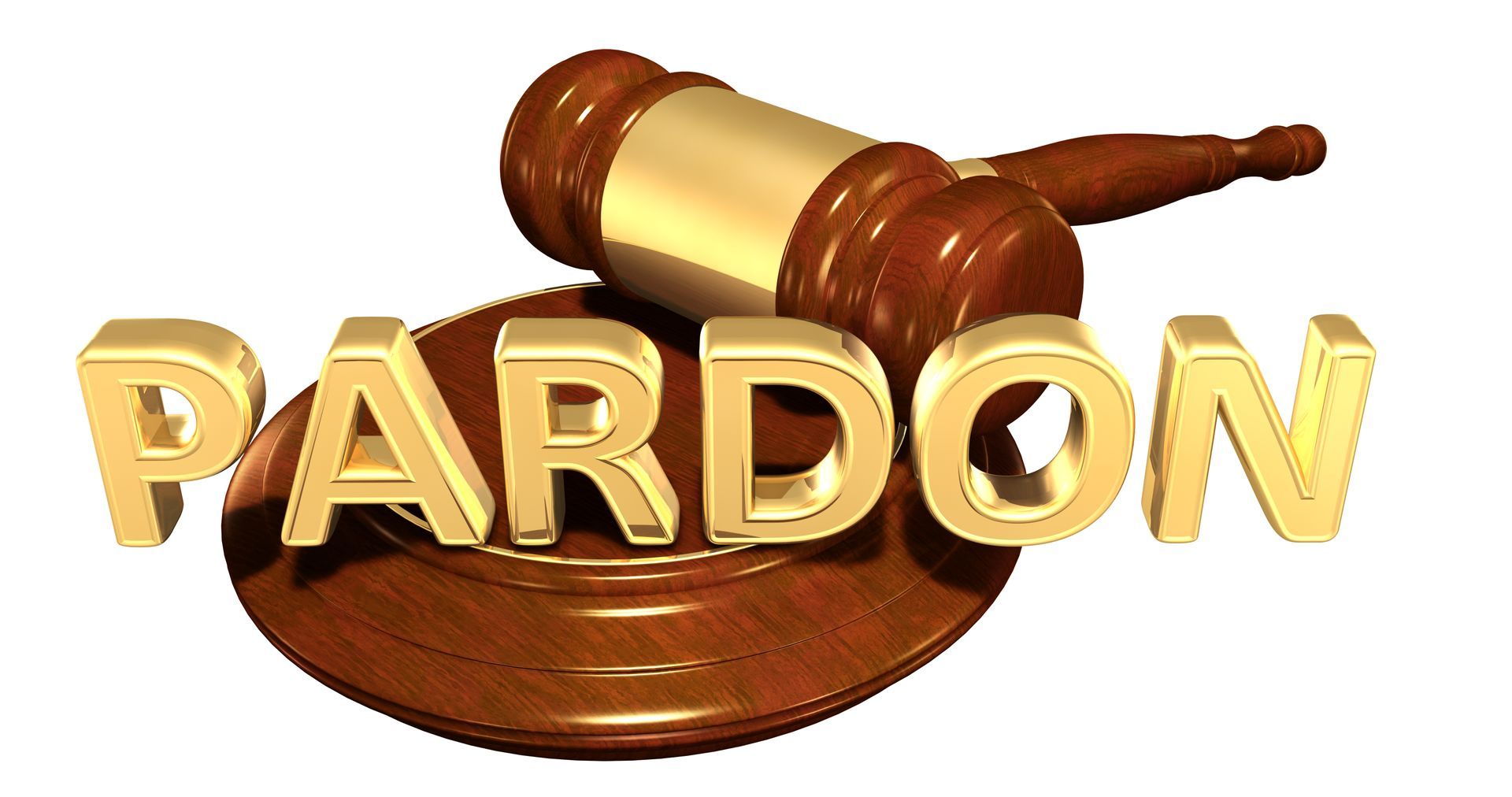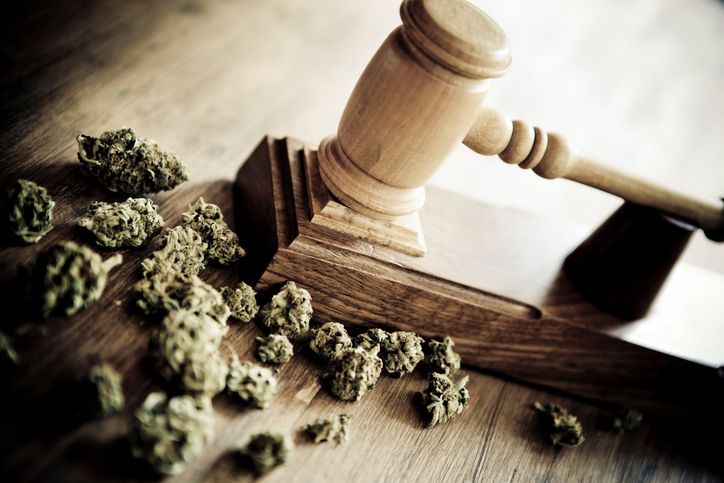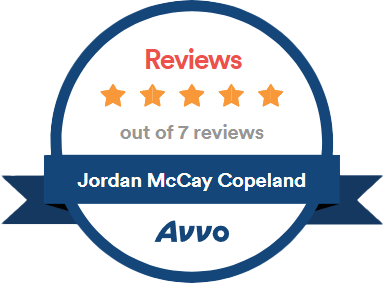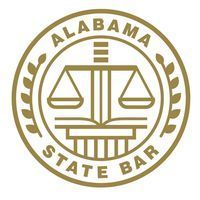New 2021 Alabama Expungement Law
The Alabama Legislature has recently passed a new Alabama Expungement Law for 2021. Governor Ivey signed the Bill (SB117) into law on April 25, 2021. Per the Bill, the law will become effective in Alabama on the first day of the third month after the Governor’s signature. The new Alabama Expungement Law for 2021 is referred to as the “Record Expungement Designed to Enhance Employment and Eliminate Recidivism (REDEEMER) Act. It is an expansion of the prior Alabama Expungement law.
2021 Alabama Expungement Law Expansion for Felony Charges and Certain Felony Convictions
In this blog post our Alabama Expungement Lawyer, Jordan M. Copeland will breakdown the sections of the expanded, 2021 Alabama Expungement Law that specifically relate to felony cases . We will detail which Alabama felony charges and convictions may now be eligible to petition for an expungement in the Circuit Courts of Alabama. We will also provide you with qualification and procedural changes in the new Alabama Expungement Law for 2021. (If your prior case was an Alabama Misdemeanor Charge or Conviction, see our future blog post discussing in detail the Misdemeanor Eligibility Requirements under the New 2021 Alabama Expungement law.)
First, felony case eligibility for expungement was expanded in Section 15-27-2 of the Code of Alabama with the 2021 Alabama Expungement Law. Subsection (a) which provides that any felony offense that resulted in a non-conviction may now be eligible for expungement (if other criteria of the expungement law is met). This is a substantial expansion from the prior Alabama Expungement law. Under the prior law, the only instance where a “violent” (per statutory definition) felony charge was eligible for expungement were cases where there was a finding of “not guilty” (meaning the case had to go to trial and a bench or jury verdict of “not guilty” was rendered).
All Felony Non-Convictions in Alabama May Now be Eligible for Expungement
Now, under the 2021 Alabama Expungement Law, Section 15-27-2(a) essentially provides that any form of a non-conviction may make a violent or non-violent felony charge eligible for expungement. See: Section 15-27-2(a):
“A person who has been charged with any felony offense may file a petition in the criminal division of the circuit court in the county in which the charges were filed, to expunge records relating to the charge in any of the following circumstances:
“(1) When the charge is dismissed with prejudice and more than 90 days have passed.
“(2) When the charge has been no billed by a grand jury and more than 90 days have passed.
“(3) When the person has been found not guilty of the charge and more than 90 days have passed. “(4) When the charge has been nolle prossed without conditions, and more than 90 days have passed, and the charge or charges have not been refiled.
“(5) When the indictment has been quashed and the statute of limitations for refiling the charge or charges has expired or the prosecuting agency confirms that the charge or charges will not be refiled.
“(6) a. When the charge was dismissed after successful completion of a drug court program, mental health court program, diversion program, veteran’s court, or any court-approved deferred prosecution program.
“b. Expungement may be a court-ordered condition of a program listed in paragraph a.
“c. A petition for expungement may be filed one year from the date of the successful completion of a program listed in paragraph a.
“(7) When the charge was dismissed without prejudice more than five years ago, has not been refiled, and the person has not been convicted of any other felony or misdemeanor crime, any violation, or any traffic violation, excluding minor traffic violations, during the previous five years. “(8) When the person proves by a preponderance of the evidence that the person is a victim of human trafficking, that the person committed the felony offense during the period the person was being trafficked, and that the person would not have committed the felony offense but for being trafficked. Evidence that a person is a victim of human trafficking may include, but is not limited to, evidence that the person’s trafficker was convicted of trafficking the person under Section 13A-6-152 or Section 13A-6-153.” (emphasis added in bold).
Therefore, under the 2021 Alabama Expungement Law if you have had a prior felony charge (any felony charge) that resulted in some form of a non-conviction as listed above, that charge would now be eligible to retain our law firm to petition for an expungement with the Circuit Court (when the applicable time periods stated above have passed). Our law firm has met with and spoken to many potential clients over the years that were previously not eligible to petition to expunge their prior violent felony charge because it was dismissed, nolle prossed, or no billed. Now those cases are eligible under the 2021 Alabama Expungement law.
Certain Felony Convictions in Alabama that Meet Seven Factors May Now be Eligible for Expungement
Next, another substantial expansion of eligible cases in the 2021 Alabama Expungement law includes some types of felony convictions that have been fully pardoned by the Alabama Bureau (aka Board) of Pardons & Paroles (“ABPP”). See the relevant portion of the new law below:
“(c) A person who has been convicted of a felony offense may file a petition in the criminal division of the circuit court in the county in which the charges were filed to expunge records relating to the charge and the conviction if all of the following occur:
“(1) The person has been granted a certificate of pardon with restoration of civil and political rights for the conviction from the Board of Pardons and Paroles.
“(2) All civil and political rights that were forfeited as a result of the conviction have been restored. “
(3) One hundred eighty [180] days have passed from the date of the issuance of the certification of pardon.
“(4) Except as provided in subsection (b), the conviction is not a violent offense, as provided in Section 12-25-32.20
“(5) The conviction is not a sex offense, as provided in Section 15-20A-5.
“(6) The conviction is not an offense involving moral turpitude, as provided in Section 17-3-30.1. This subdivision does not apply if the crime the person was convicted of was classified as a felony at the time of the conviction, but has been reclassified as a misdemeanor, pursuant to Act 2015-185, and the person has not been arrested for any offense, excluding minor traffic violations, 15 years prior to the filing of the petition for expungement.
“(7) The conviction is not a serious traffic offense, as provided in Article 9 of Chapter 5A of Title 32.” Section 15-27-2(c), Code of Alabama.
There is a lot to “unpack” in the above section. Our law firm has done the research and cross-referenced the other statutory sections that are referenced in the above section relative to eligible felony convictions. Let’s look at the felony convictions that are now eligible for expungement in Alabama in more detail. First, you must meet all seven (7) requirements above for a felony conviction to be eligible for expungement.
Some Alabama Felony Convictions that were Fully Pardoned by the ABPP May Now Be Eligible for Expungement
Factors 1 and 2 under Section 15-27-2(c), Code of Alabama as quoted above provide that you must first receive a full, unrestricted pardon with restoration of ALL political and civil rights from the ABPP. These rights include the right to vote, right to own/possession a firearm/ammunition, right to hold public office, and right to sit on a jury. If the ABPP has only granted you a “limited pardon” i.e., a pardon with a restriction on the restoration of your firearm rights, then you will need to first reapply after two years for another full pardon with the ABPP. Factor 3 under Section 15-27-2(c), Code of Alabama as quoted above provides that One Hundred Eighty (180) days must have passed from the issuance of your Certificate of Full Pardon.
Violent Felony Convictions in Alabama that were Fully Pardoned are Not Eligible for Expungement
Factor 4, under Section 15-27-2(c), Code of Alabama, as quoted above, provides that your felony conviction must not be a “violent offense”, as provided in Section 12-25-32. The list of “violent offenses” according to Alabama Code Section 12-25-32 are the following:
“… VIOLENT OFFENSE. a. For the purposes of this article, a violent offense includes each of the following offenses, or any substantially similar offense to those listed in this subdivision created after June 20, 2003:
1. Capital murder pursuant to Sections 13A-6-2 and 13A-5-40.
2. Murder pursuant to Section 13A-6-2.
3. Manslaughter pursuant to Section 13A-6-3.
4. Criminally negligent homicide pursuant to Section 13A-6-4.
5. Assault I pursuant to Section 13A-6-20.
6. Assault II pursuant to Section 13A-6-21.
7. Compelling street gang membership pursuant to Section 13A-6-26.
8. Kidnapping I pursuant to Section 13A-6-43.
9. Kidnapping II pursuant to Section 13A-6-44.
10. Rape I pursuant to Section 13A-6-61.
11. Rape II pursuant to Section 13A-6-62.
12. Sodomy I pursuant to Section 13A-6-63.
13. Sodomy II pursuant to Section 13A-6-64.
14. Sexual torture pursuant to Section 13A-6-65.l.
15. Sexual abuse I pursuant to Section 13A-6-66.
16. Enticing a child to enter a vehicle for immoral purposes pursuant to Section 13A-6-69.
17. Stalking pursuant to Section 13A-6-90.
18. Aggravated stalking pursuant to Section 13A-6-91.
19. Soliciting a child by computer pursuant to Section 13A-6-110.
20. Domestic violence I pursuant to Section 13A-6-130.
21. Domestic violence II pursuant to Section 13A-6-131.
22. Burglary I pursuant to Section 13A-7-5.
23. Burglary II pursuant to Section 13A-7-6.
24. Burglary III pursuant to subdivision (1) or subdivision (2) of subsection (a) of Section 13A-7-7.
25. Arson I pursuant to Section 13A-7-41.
26. Criminal possession of explosives pursuant to Section 13A-7-44.
27. Extortion I pursuant to Section 13A-8-14.
28. Robbery I pursuant to Section 13A-8-41.
29. Robbery II pursuant to Section 13A-8-42.
30. Robbery III pursuant to Section 13A-8-43.
31. Pharmacy robbery pursuant to Section 13A-8-51.
32. Terrorist threats pursuant to Section 13A-10-15.
33. Escape I pursuant to Section 13A-10-31.
34. Promoting prison contraband I pursuant to Section 13A-10-36, involving a deadly weapon or dangerous instrument.
35. Intimidating a witness pursuant to Section 13A-10-123.
36. Intimidating a juror pursuant to Section 13A-10-127.
37. Treason pursuant to Section 13A-11-2.
38. Discharging a weapon into an occupied building, dwelling, automobile, etc., pursuant to Section 13A-11-61.
39. Promoting prostitution I pursuant to Section 13A-12-111.
40. Production of obscene matter involving a minor pursuant to Section 13A-12-197.
41. Trafficking pursuant to Section 13A-12-231.
42. Child abuse pursuant to Section 26-15-3.
43. Elder abuse pursuant to Section 38-9-7.
44. Terrorism pursuant to Section 13A-10-152.
45. Hindering prosecution for terrorism pursuant to Section 13A-10-154.
46. Domestic violence III pursuant to subsection (d) of Section 13A-6-132.
47. Domestic violence by strangulation or suffocation pursuant to Section 13A-6-138.
48. Human trafficking I pursuant to Section 13A-6-152.
49. Human trafficking II pursuant to Section 13A-6-153.
50. Hindering prosecution in the first degree pursuant to Section 13A-10-43.
51. Any substantially similar offense for which an Alabama offender has been convicted under prior Alabama law or the law of any other state, the District of Columbia, the United States, or any of the territories of the United States.
b. The basis for defining these offenses as violent is that each offense meets at least one of the following criteria: 1. Has as an element, the use, attempted use, or threatened use of a deadly weapon or dangerous instrument or physical force against the person of another. 2. Involves a substantial risk of physical injury against the person of another. 3. Is a nonconsensual sex offense. 4. Is particularly reprehensible.
c. Any attempt, conspiracy, or solicitation to commit a violent offense shall be considered a violent offense for the purposes of this article.
d. Any criminal offense which meets the criteria provided in paragraph b. enacted after 2003. “
Ala. Code § 12-25-32 (1975)
Again, if your prior criminal charge in Alabama was a conviction and it is on the list above, then it is not eligible for expungement (even if it has been fully pardoned). (Except under subsection (b) there is a very limited exception for certain violent crimes committed by victims of human trafficking while being trafficked and proven by a preponderance of the evidence in court).
Felony Sex Offense Convictions that were Fully Pardoned in Alabama are NOT Eligible for Expungement
Number 5, (still under the seven eligibility requirements for a felony conviction to be eligible for expungement), the felony conviction may not be a “sex offense” in Alabama Code Section 15-20A-5 are not eligible for expungement. These charges include:
“(1) Rape in the first degree, as provided by Section 13A-6-61.
(2) Rape in the second degree, as provided by Section 13A-6-62. A juvenile sex offender adjudicated delinquent of a violation of rape in the second degree is presumed to be exempt from this chapter after the juvenile has been counseled on the dangers of the conduct for which he or she was adjudicated delinquent unless the sentencing court makes a determination that the juvenile sex offender is to be subject to this chapter.
(3) Sodomy in the first degree, as provided by Section 13A-6-63.
(4) Sodomy in the second degree, as provided by Section 13A-6-64. A juvenile sex offender adjudicated delinquent of a violation of sodomy in the second degree is presumed to be exempt from this chapter after the juvenile has been counseled on the dangers of the conduct for which he or she was adjudicated delinquent unless the sentencing court makes a determination that the juvenile sex offender is to be subject to this chapter.
(5) Sexual misconduct, as provided by Section 13A-6-65, provided that on a first conviction or adjudication the sex offender is only subject to registration and verification pursuant to this chapter. On a second or subsequent conviction or adjudication of a sex offense, if the second or subsequent conviction or adjudication does not arise out of the same set of facts and circumstances as the first conviction or adjudication of a sex offense, the sex offender shall comply with all requirements of this chapter. A juvenile sex offender adjudicated delinquent of a violation of sexual misconduct is presumed to be exempt from this chapter after the juvenile has been counseled on the dangers of the conduct for which he or she was adjudicated delinquent unless the sentencing court makes a determination that the juvenile sex offender is to be subject to this chapter.
(6) Sexual torture, as provided by Section 13A-6-65.1.
(7) Sexual abuse in the first degree, as provided by Section 13A-6-66.
(8) Sexual abuse in the second degree, as provided by Section 13A-6-67.
(9) Indecent exposure, as provided by Section 13A-6-68, provided that on a first conviction or adjudication of a sex offense, the sex offender is only subject to registration and verification pursuant to this chapter. On a second or subsequent conviction or adjudication of a sex offense, if the second or subsequent conviction or adjudication does not arise out of the same set of facts and circumstances as the first conviction or adjudication, the sex offender shall comply with all requirements of this chapter. A juvenile sex offender adjudicated of a violation of indecent exposure is presumed to be exempt from this chapter after the juvenile has been counseled on the dangers of the conduct for which he or she was adjudicated delinquent unless the sentencing court makes a determination that the juvenile sex offender is to be subject to this chapter.
(10) Enticing a child to enter a vehicle, room, house, office, or other place for immoral purposes, as provided by Section 13A-6-69.
(11) Sexual abuse of a child less than 12 years old, as provided by Section 13A-6-69.1.
(12) Promoting prostitution in the first degree, as provided by Section 13A-12-111.
(13) Promoting prostitution in the second degree, as provided by Section 13A-12-112.
(14) Violation of the Alabama Child Pornography Act, as provided by Section 13A-12-191, 13A-12-192, 13A-12-196, or 13A-12-197. A juvenile sex offender adjudicated delinquent of a violation of the Alabama Child Pornography Act is presumed to be exempt from this chapter after the juvenile has been counseled on the dangers of the conduct for which he or she was adjudicated delinquent unless the sentencing court makes a determination that the juvenile sex offender is to be subject to this chapter.
(15) Unlawful imprisonment in the first degree, as provided by Section 13A-6-41, if the victim of the offense is a minor, and the record of adjudication or conviction reflects the intent of the unlawful imprisonment was to abuse the minor sexually.
(16) Unlawful imprisonment in the second degree, as provided by Section 13A-6-42, if the victim of the offense is a minor, and the record of adjudication or conviction reflects the intent of the unlawful imprisonment was to abuse the minor sexually.
(17) Kidnapping in the first degree, as provided by subdivision (4) of subsection (a) of Section 13A-6-43, if the intent of the abduction is to violate or abuse the victim sexually.
(18) Kidnapping of a minor, except by a parent, guardian, or custodian, as provided by Section 13A-6-43 or 13A-6-44.
(19) Incest, as provided by Section 13A-13-3.
(20) Transmitting obscene material to a child by computer, as provided by Section 13A-6-111.
(21) School employee engaging in a sex act or deviant sexual intercourse with a student, or having sexual contact or soliciting a sex act or sexual contact with a student, as provided by Sections 13A-6-81 and 13A-6-82.
(22) Foster parent engaging in a sex act, having sexual contact, or soliciting a sex act or sexual contact with a foster child, as provided by Section 13A-6-71.
(23) Facilitating solicitation of unlawful sexual conduct with a child, as provided by Section 13A-6-121.
(24) Electronic solicitation of a child, as provided by Section 13A-6-122.
(25) Facilitating the on-line solicitation of a child, as provided by Section 13A-6-123.
(26) Traveling to meet a child for an unlawful sex act, as provided by Section 13A-6-124.
(27) Facilitating the travel of a child for an unlawful sex act, as provided by Section 13A-6-125.
(28) Human trafficking in the first degree, as provided by Section 13A-6-152, provided that the offense involves sexual servitude.
(29) Human trafficking in the second degree, as provided by Section 13A-6-153, provided that the offense involves sexual servitude.
(30) Custodial sexual misconduct, as provided by Section 14-11-31.
(31) Sexual extortion, as provided by Section 13A-6-241.
(32) Directing a child to engage in a sex act, as provided in Section 13A-6-243.
(33) Any offense which is the same as or equivalent to any offense set forth above as the same existed and was defined under the laws of this state existing at the time of such conviction, specifically including, but not limited to, crime against nature, as provided by Section 13-1-110; rape, as provided by Sections 13-1-130 and 13-1-131; carnal knowledge of a woman or girl, as provided by Sections 13-1-132 through 13-1-135, or attempting to do so, as provided by Section 13-1-136; indecent molestation of children, as defined and provided by Section 13-1-113; indecent exposure, as provided by Section 13-1-111; incest, as provided by Section 13-8-3; offenses relative to obscene prints and literature, as provided by Sections 13-7-160 through 13-7-175, inclusive; employing, harboring, procuring or using a girl over 10 and under 18 years of age for the purpose of prostitution or sexual intercourse, as provided by Section 13-7-1; seduction, as defined and provided by Section 13-1-112; a male person peeping into a room occupied by a female, as provided by Section 13-6-6; assault with intent to ravish, as provided by Section 13-1-46; and soliciting a child by computer, as provided by Section 13A-6-110.
(34) Any solicitation, attempt, or conspiracy to commit any of the offenses listed in subdivisions (1) to (33), inclusive.
(35) Any crime committed in Alabama or any other state, the District of Columbia, any United States territory, or a federal, military, Indian, or foreign country jurisdiction which, if it had been committed in this state under the current provisions of law, would constitute an offense listed in subdivisions (1) to (34), inclusive.
(36) Any offense specified by Title I of the federal Adam Walsh Child Protection and Safety Act of 2006 (Pub. L. 109-248, the Sex Offender Registration and Notification Act (SORNA)).
(37) Any crime committed in another state, the District of Columbia, any United States territory, or a federal, military, Indian, or foreign country jurisdiction if that jurisdiction also requires that anyone convicted of that crime register as a sex offender in that jurisdiction.
(38) Any offender determined in any jurisdiction to be a sex offender shall be considered a sex offender in this state.
(39) The foregoing notwithstanding, any crime committed in any jurisdiction which irrespective of the specific description or statutory elements thereof, is in any way characterized or known as rape, carnal knowledge, sodomy, sexual assault, sexual battery, criminal sexual conduct, criminal sexual contact, sexual abuse, continuous sexual abuse, sexual torture, solicitation of a child, enticing or luring a child, child pornography, lewd and lascivious conduct, taking indecent liberties with a child, molestation of a child, criminal sexual misconduct, video voyeurism, or there has been a finding of sexual motivation.
(40) Any crime not listed in this section wherein the underlying felony is an element of the offense and listed in subdivisions (1) to (39), inclusive.
(41) Any other offense not provided for in this section wherein there is a finding of sexual motivation as provided by Section 15-20A-6.” Ala. Code § 15-20A-5 (1975)
Again, the above list consists of “sex offenses” under Alabama law and convictions of these offenses are not eligible for expungement under the new 2021 Alabama Expungement law (even if you have been fully pardoned).
Alabama Felony Convictions for Crimes “Involving Moral Turpitude in Section 17-3-30.1” that have been Fully Pardoned are NOT Eligible for Expungement
Next, Number 6, convictions of felonies “involving moral turpitude as provided in
Section 17-3-30.1.” are not eligible for expungement. The following are the crimes “involving moral turpitude” in Section 17-3-30.1:
“ (c) … (1) Murder as defined in the following sections: a. Subdivision (1) of subsection (a) of Section 13A-5-40. b. Subdivision (2) of subsection (a) of Section 13A-5-40. c. Subdivision (3) of subsection (a) of Section 13A-5-40. d. Subdivision (4) of subsection (a) of Section 13A-5-40. e. Subdivision (5) of subsection (a) of Section 13A-5-40. f. Subdivision (6) of subsection (a) of Section 13A-5-40. g. Subdivision (7) of subsection (a) of Section 13A-5-40. h. Subdivision (8) of subsection (a) of Section 13A-5-40. i. Subdivision (9) of subsection (a) of Section 13A-5-40. j. Subdivision (10) of subsection (a) of Section 13A-5-40. k. Subdivision (11) of subsection (a) of Section 13A-5-40. l. Subdivision (12) of subsection (a) of Section 13A-5-40. m. Subdivision (13) of subsection (a) of Section 13A-5-40. n. Subdivision (14) of subsection (a) of Section 13A-5-40. o. Subdivision (15) of subsection (a) of Section 13A-5-40. p. Subdivision (16) of subsection (a) of Section 13A-5-40. q. Subdivision (17) of subsection (a) of Section 13A-5-40. r. Subdivision (18) of subsection (a) of Section 13A-5-40. s. Subdivision (19) of subsection (a) of Section 13A-5-40. t. Section 13A-6-2.
(2) Manslaughter as defined in Section 13A-6-3.
(3) Assault as defined in Section 13A-6-20 [Assault, 1 st Degree], except for subdivision (5) of subsection (a)[Assault, 1 st Degree causing serious physical injury with a motor vehicle while intoxicated] of Section 13A-6-20, and Section 13A-6-21[Assault, 2 nd Degree].
(4) Kidnapping in the first degree as defined in Section 13A-6-43.
(5) Kidnapping in the second degree as defined in Section 13A-6-44.
(6) Rape as defined in Sections 13A-6-61[Rape, 1 st Degree] and 13A-6-62[Rape, 2 nd Degree].
(7) Sodomy as defined in Sections 13A-6-63 and 13A-6-64.
(8) Sexual torture as defined in Section 13A-6-65.1.
(9) Sexual abuse as defined in Sections 13A-6-66, 13A-6-67, and 13A-6-69.1.
(10) Enticing a child to enter a vehicle for immoral purposes as defined in Section 13A-6-69.
(11) Facilitating solicitation of unlawful sexual conduct with a child as defined in Section 13A-6-121.
(12) Electronic solicitation of a child as defined in Section 13A-6-122.
(13) Facilitating the on-line solicitation of a child as defined in Section 13A-6-123.
(14) Traveling to meet a child for an unlawful sex act as defined in Section 13A-6-124.
(15) Facilitating the travel of a child for an unlawful sex act as defined in Section 13A-6-125.
(16) Human trafficking as defined in Sections 13A-6-152 and 13A-6-153.
(17) Terrorism as defined in Section 13A-10-152.
(18) Soliciting or providing support for an act of terrorism as defined in Section 13A-10-153.
(19) Hindering prosecution of terrorism as defined in Section 13A-10-154.
(20) Endangering the water supply as defined in Section 13A-10-171.
(21) Possession, manufacture, transport, or distribution of a destructive device or bacteriological or biological weapon as defined in Section 13A-10-193.
(22) Selling, furnishing, giving away, delivering, or distribution of a destructive device, a bacteriological weapon, or biological weapon to a person who is less than 21 years of age as defined in Section 13A-10-194.
(23) Possession, manufacture, transport, or distribution of a detonator, explosive, poison, or hoax device as defined in Section 13A-10-195.
(24) Possession or distribution of a hoax device represented as a destructive device or weapon as defined in subsection (c) of Section 13A-10-196.
(25) Attempt to commit an explosives or destructive device or bacteriological or biological weapons crime as defined in Section 13A-10-197.
(26) Conspiracy to commit an explosives or destructive device or bacteriological or biological weapons crime as defined in Section 13A-10-198.
(27) Hindrance or obstruction during detection, disarming, or destruction of a destructive device or weapon as defined in Section 13A-10-199.
(28) Possession or distribution of a destructive device or weapon intended to cause injury or destruction as defined in Section 13A-10-200.
(29) Treason as defined in Section 13A-11-2.
(30) Dissemination or public display of obscene matter containing visual depiction of persons under 17 years of age involved in obscene acts as defined in Section 13A-12-191.
(31) Possession and possession with intent to disseminate obscene matter containing visual depiction of persons under 17 years of age involved in obscene acts as defined in Section 13A-12-192.
(32) Parents or guardians permitting children to engage in production of obscene matter as defined in Section 13A-12-196.
(33) Production of obscene matter containing visual depiction of persons under 17 years of age involved in obscene acts as defined in Section 13A-12-197.
(34) Distribution, possession with intent to distribute, production of obscene material, or offer or agreement to distribute or produce , as defined in Section 13A-12-200.2.
(35) Trafficking in cannabis, cocaine, or other illegal drugs or trafficking in amphetamine and methamphetamine as defined in Section 13A-12-231.
(36) Bigamy as defined in Section 13A-13-1.
(37) Incest as defined in Section 13A-13-3.
(38) Torture or other willful maltreatment of a child under the age of 18 as defined in Section 26-15-3.
(39) Aggravated child abuse as defined in Section 26-15-3.1.
(40) Prohibited acts in the offer, sale, or purchase of securities as defined in Section 8-6-17.
(41) Burglary as defined in Sections 13A-7-5 [Burglary, 1 st Degree] and [Burglary, 2 nd Degree] 13A-7-6.
(42) Aggravated theft by deception as defined in Section 13A-8-2.1.
(43) Theft of property as defined in Sections 13A-8-3 and 13A-8-4.
(44) Theft of lost property as defined in Sections 13A-8-7 and 13A-8-8.
(45) Theft of trademarks or trade secrets as defined in Section 13A-8-10.4.
(46) Robbery as defined in Sections 13A-8-41, 13A-8-42, and 13A-8-43.
(47) Forgery as defined in Sections 13A-9-2 and 13A-9-3.
(48) Any crime as defined by the laws of the United States or by the laws of another state, territory, country, or other jurisdiction, which, if committed in this state, would constitute one of the offenses listed in this subsection.
Alabama Felony Convictions for Crimes Reclassified as Misdemeanors under Act 2015-185 and that have Granted Full Pardons by the ABPP May Be Eligible to Petition for Expungement
Under the Number 6 exclusion “… does not apply if the crime the person was convicted of was classified as a felony at the time of the conviction, but has been reclassified as a misdemeanor, pursuant to Act 2015-185, and the person has not been arrested for any offense, excluding minor traffic violations, 15 years prior to the filing of the petition for expungement.” Section 15-27-1(b)(6). Accordingly: Act 2015-185, SB67, amended the following relevant crimes under Alabama law that were previously felonies in Alabama and were reclassified as misdemeanors:
Section 13A-8-5 Theft of property in the fourth degree. Class A Misdemeanor
Section 13A-8-9 Theft of lost property in the fourth degree. Class A Misdemeanor
Section 13A-8-10.3 Theft of services in the fourth degree. Class A Misdemeanor
Section 13A-8-19 Receiving stolen property in the fourth degree. Class A Misdemeanor
Section 13A-9-4 Forgery in the fourth degree. Class A Misdemeanor
Section 13A-9-7 Criminal possession of forged instrument in the fourth degree. Class A Misdemeanor
Prior to Act 2015-185, the above charges were classified as “Third Degree” Class C Felony charges. Therefore if prior to Act 2015-185 becoming law you were charged and convicted of any of the above crimes in the “Third Degree” as a felony, that charge may now be eligible to petition for an expungement under the 2021 Alabama Expungement Law, if the other criterion of this statute is met (the person has not been arrested for any offense, excluding minor traffic violations, 15 years prior to the filing of the petition for expungement).
Alabama Felony Convictions of “Serious Traffic Offenses” that were Fully Pardoned are NOT Eligible for Expungement
Next, under Number 7 of Alabama Code Section 15-27-2(c) above in the new 2021
Alabama Expungement Law – convictions of felonies classified as “serious traffic offense”, as provided in Article 9 of Chapter 5A of Title 32 of the Code of Alabama are not eligible for expungement. The following are possible “serious traffic offenses” under Alabama law:
Section 32-5A-190 – Reckless driving
Section 32-5A-190.1 – Homicide by vehicle
Section 32-5A-191 – Driving while under influence of alcohol, controlled substances, etc.
Therefore, if you were previously convicted of a felony in Alabama and you meet all seven (7) conditions of Section 15-27-2(c), your felony conviction may be eligible to retain our law firm to represent you in the petition for expungement process.
Limitations on the Number Expungements for Felony Convictions that Meet All Criteria
Another eligibility change in the 2021 Alabama Expungement law places limitations on the number of certain types of felony cases that may be expunged. Sections 15-27-2.1 and 15-27-21 are added to the Code of Alabama 1975, to read, in part, as follows:
“§15-27-2.1. (a) … (2) A person may only be granted one expungement pursuant to subsection (c) of Section 15-27-2.” This means that a person convicted of a felony offense that meets all the criteria under 15-27-2(c) may only be granted an expungement of one felony conviction.
Limitations on the Number of Expungements for Felony Charges Dismissed After Completion of any Court-Approved Deferred Prosecution Program
Further, “(3) A person may only be granted two expungements pursuant to … subdivision (a)(6) of Section 18 15-27-2.” This means that a person may only have two felony charges expunged that were dismissed after successful completion of a drug court program , mental health court program, diversion program, veteran’s court, or any court-approved deferred prosecution program.
Multiple Charges from the same Arrest / Incident Count as Only One Expungement
However, very important is “(b) For the purposes of subsection (a), one expungement shall include all charges or convictions stemming from the same arrest or incident .” See: §15-27-2.1(b). Therefore, if a person has multiple charges from the same arrest / incident then all charges count as only one expungement. (emphasis added in bold)
Alabama Expungement Petition Court Administrative Filing Fees are $500 per Arrest / Incident
Additionally, the statutory administrative court filing fees for filing a petition forExpungement have increased from $300 per petition/charge to $500 per petition/charge. However, under the 2021 Alabama Expungement law all charges from a single arrest or incident only require one administrative court filing fee of $500. See: 15-27-4(b)(1) Code of Alabama.
Alabama Felony Charge / Conviction Expungement Eligibility Recap under New 2021 Alabama Expungement Law
If you have previously been charged with any felony in Alabama that resulted in some form of a non-conviction (dismissed, nolle prossed, no billed, acquitted after a trial, etc.) your felony charge may now be eligible to petition for an expungement in Alabama, if you meet the other statutory requirements.
Also, if you received a full, unrestricted pardon from the ABPP of a felony conviction
that was not a “violent offense”, not a “sex offense”, not a “serious traffic offense”, and not a crime “involving moral turpitude as provided in Section 17-3-30.1.” then your prior felony conviction may be eligible to petition for an expungement in Alabama, if you meet the other statutory requirements. Also, if your prior felony conviction has been fully pardoned by the ABPP and it is a crime that has now been reclassified as a misdemeanor under Act 2015-185 it may be eligible to petition for an expungement if you meet the other statutory requirements.
If your prior case was an Alabama Misdemeanor Charge or Conviction, see our future blog post discussing in detail the Misdemeanor Eligibility Requirements under the New 2021 Alabama Expungement law.
If you believe your prior Alabama Felony case meets the above New 2021 Alabama Expungement eligibility requirements, feel free to contact our law firm via email at: Jordan@ExpungementAlabamaLawyer.com or via phone at: (256) 378-6087 or (205) 924-3839 to discuss potential representation.
The post New 2021 Alabama Expungement Law – Felony Charges appeared first on Expungement Alabama Lawyer.
